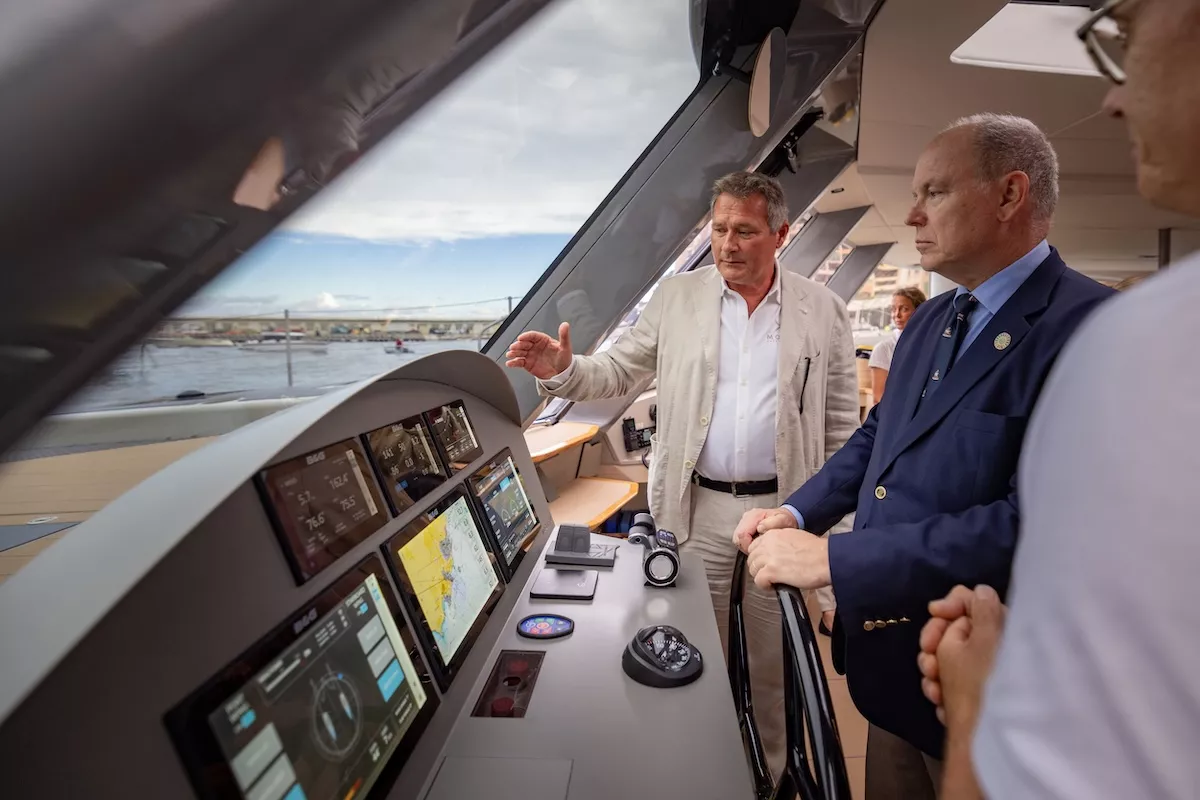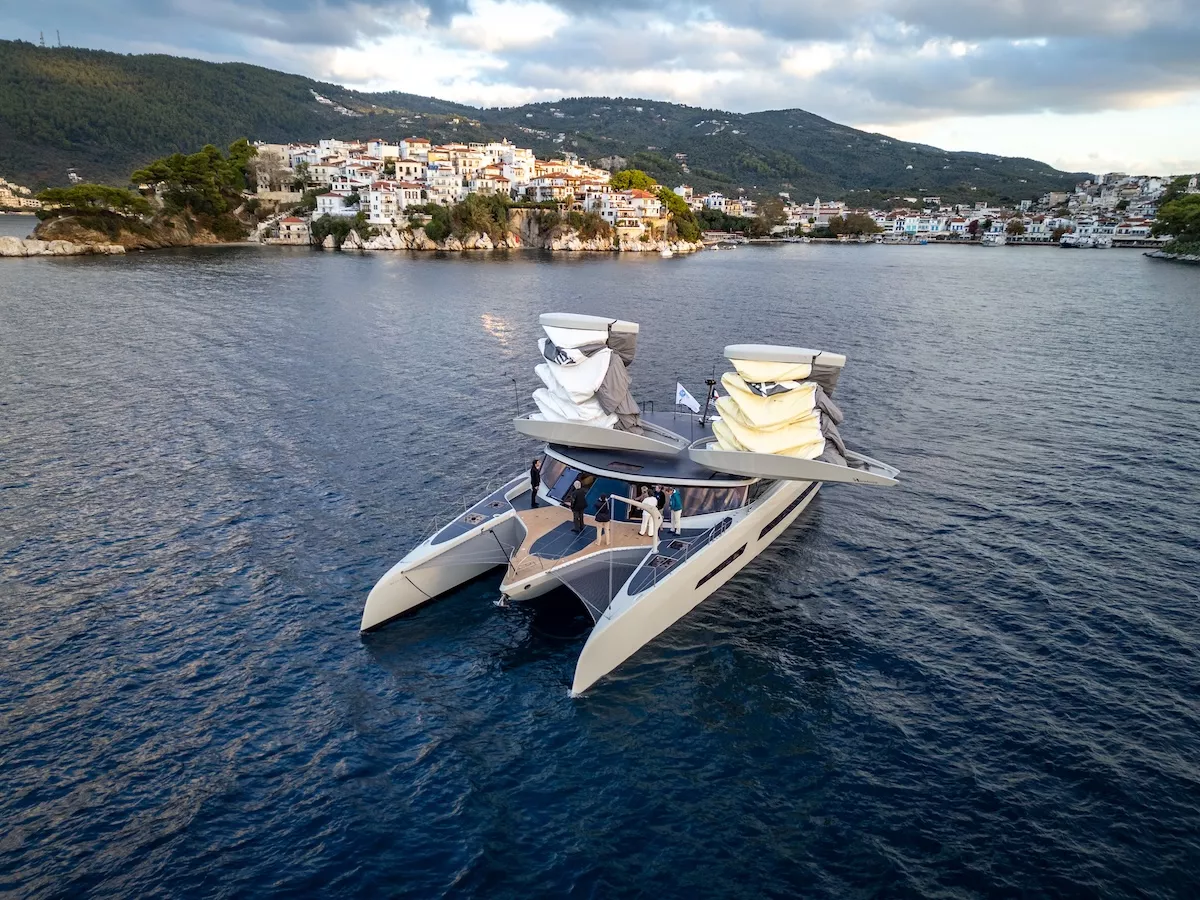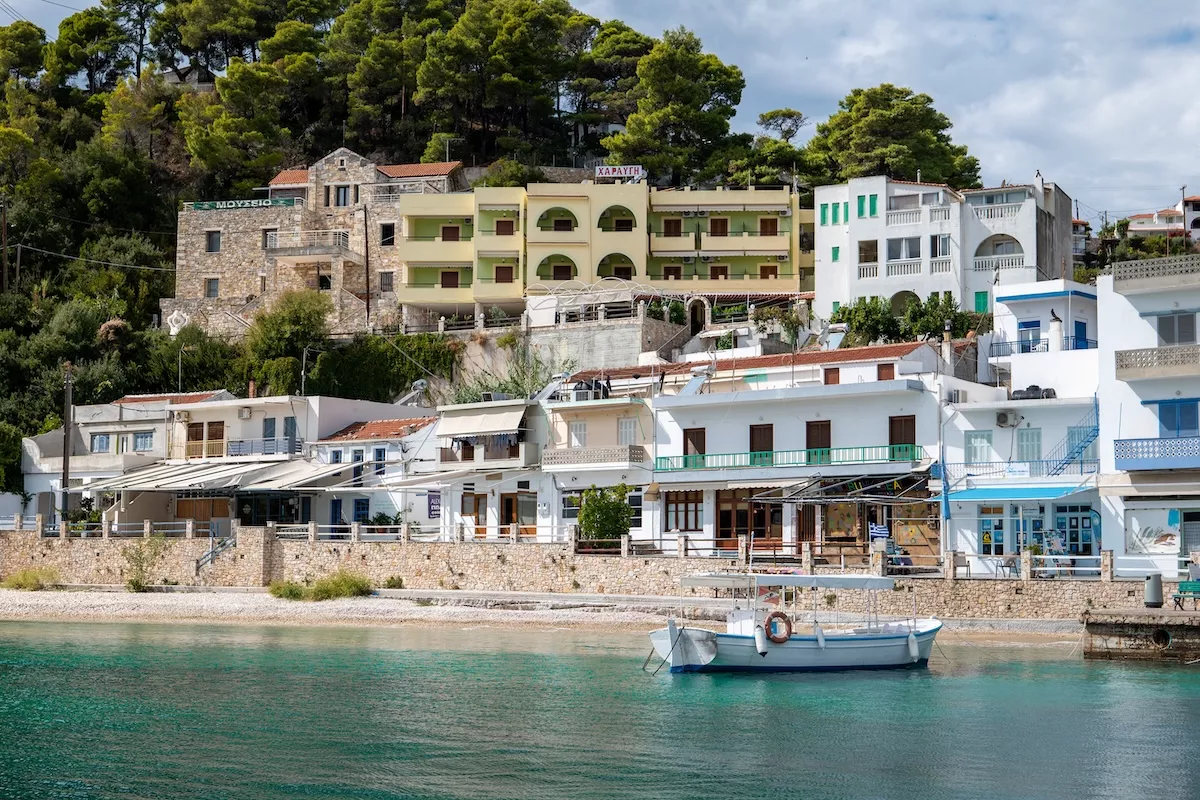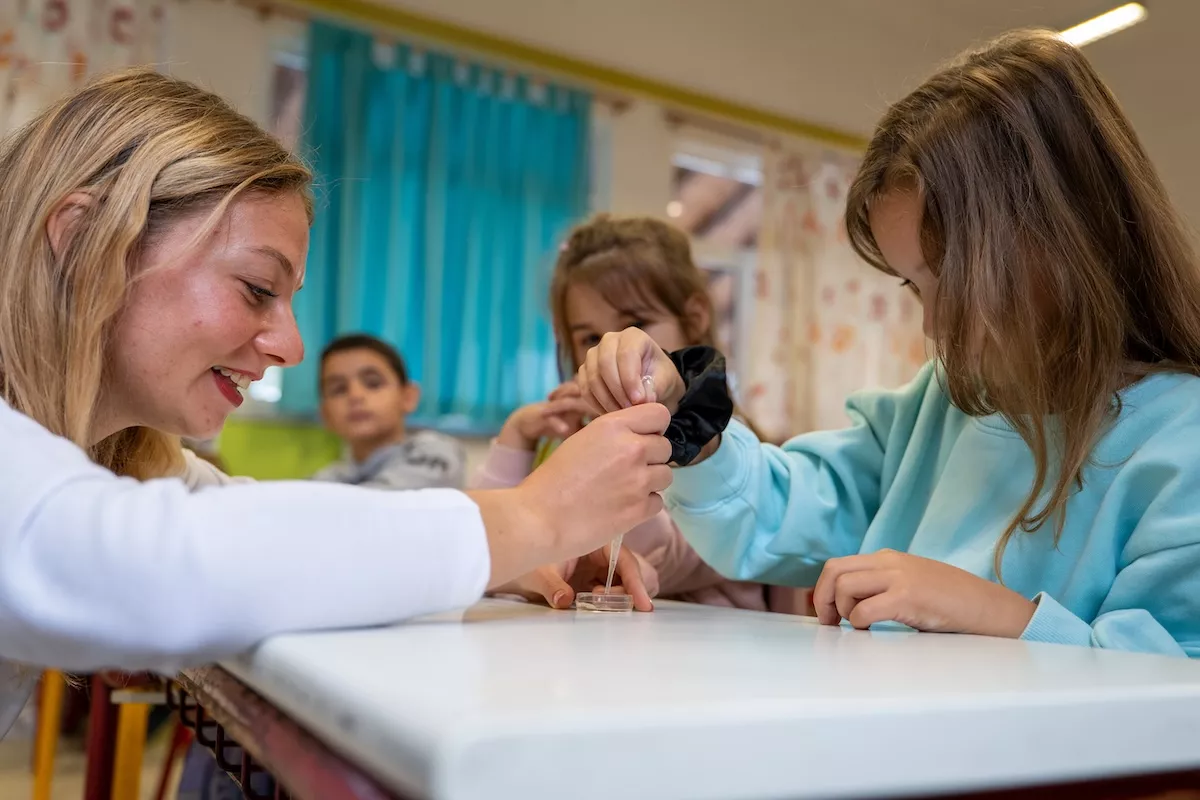After 40 days navigating the fragile and fragmented waters of the Aegean Sea, Mission Greece 2025 has returned with a clearer picture of the Mediterranean’s shifting ecological balance—and renewed urgency to protect it.
Led by The Explorations of Monaco under the High Patronage of Prince Albert II, this first leg of the new Mediterranean Missions programme (2025–2030) brought together scientists, diplomats, educators, and civil society in a floating laboratory of science and cooperation. Aboard the hybrid-powered catamaran MODX 70-01, the multidisciplinary crew visited multiple sites across Greece, from the Cyclades to the Ionian Sea, combining high-level marine research with hands-on outreach and diplomatic engagement.
A Sea in Flux
Among the most revealing findings was the accelerating decline of brown algae forests (Cystoseira), long considered a key indicator of coastal ecosystem health. The MAR4PAST project, which compared current observations with data collected 15 years ago, confirmed widespread degradation—except in one place: the marine protected area (MPA) of Alonissos, where the habitats remain largely intact.
“This stark contrast is more than a data point—it’s a powerful demonstration that protection works,” said Xavier Prache, Director of The Explorations of Monaco.
“It gives us both a warning and a roadmap.”
Elsewhere, the EXOFISH-MED programme documented the growing presence of non-native species entering through the Suez Canal. At Alonissos, only two invasive species were recorded; on the more southerly and exposed island of Syros, six were found. These findings suggest that climate and current patterns are reshaping the biological landscape of the Mediterranean faster than many had anticipated.

Deep Data and Living Currents
In the deeper Ionian Sea, the expedition deployed two BGC Argo floats, state-of-the-art autonomous sensors that measure ocean health down to 2,000 metres. Initial readings confirmed their full functionality, promising new long-term datasets for understanding everything from oxygen levels to acidity—a critical tool in tracking ocean climate change.
Meanwhile, sediment samples taken by the Scientific Centre of Monaco revealed microplastic concentrations in the upper layers of the seabed, adding to the growing body of evidence that even the most remote marine environments are not immune to pollution.
A participatory bathymetry project helped map previously uncharted seafloor zones, with local sailors and scientists contributing to data collection—an example of how citizen science is becoming a pillar of marine knowledge.
Diplomacy at Sea
The expedition was not just about science, but also soft diplomacy. On 9th October, Prince Albert II travelled to Alonissos, where he met with researchers, MPA managers, and local residents. Discussions focused on the preservation of the Mediterranean monk seal, one of the region’s most endangered species, and how to strengthen MPA governance in the face of accelerating environmental pressures.
The mission also served to deepen bilateral ties between Monaco and Greece, reinforcing both nations’ shared commitment to marine conservation.
Education and Engagement
Public outreach was woven into every stage of the mission. In Athens, the exhibition “The Time for Action – Marine Protected Areas of the Mediterranean” opened at the Eugenides Foundation, marking the official start of the awareness campaign. On the islands of Alonissos and Syros, schoolchildren took part in interactive workshops led by Monaco’s Oceanographic Institute and Plankton Planet, while professional sessions engaged fishers, park rangers and local NGOs.
In Volos, university students boarded MODX 70-01 to learn how to use drones, underwater mapping tools and environmental sensors—giving them hands-on experience in marine data collection. Monaco’s scientific team also delivered a public lecture on microplastic pollution at the University of Thessaly.
Engineers and biologists from Monaco-based startup Cosma deployed their underwater drone to precisely map areas of the Pagasetic Gulf.
These initiatives allowed students, educators, and local decision-makers to actively participate in the scientific mission, extending its impact far beyond the expedition itself.
A Blueprint for the Future
With climate pressures mounting and biodiversity under threat, Mission Greece 2025 sets the tone for a broader regional push. Its findings show that protection is possible—but must be scaled up and backed by science, cooperation and public support.
“The Mediterranean is more than a shared sea—it’s a shared responsibility,” said Xavier Prache.
“This mission is proof that when nations collaborate, and when science, diplomacy and public engagement are aligned, we can build a blueprint for marine regeneration.”
Stay updated with Monaco Life: sign up for our free newsletter, catch our podcast on Spotify, and follow us across Facebook, Instagram, LinkedIn, and Tik Tok.
All photos provided


